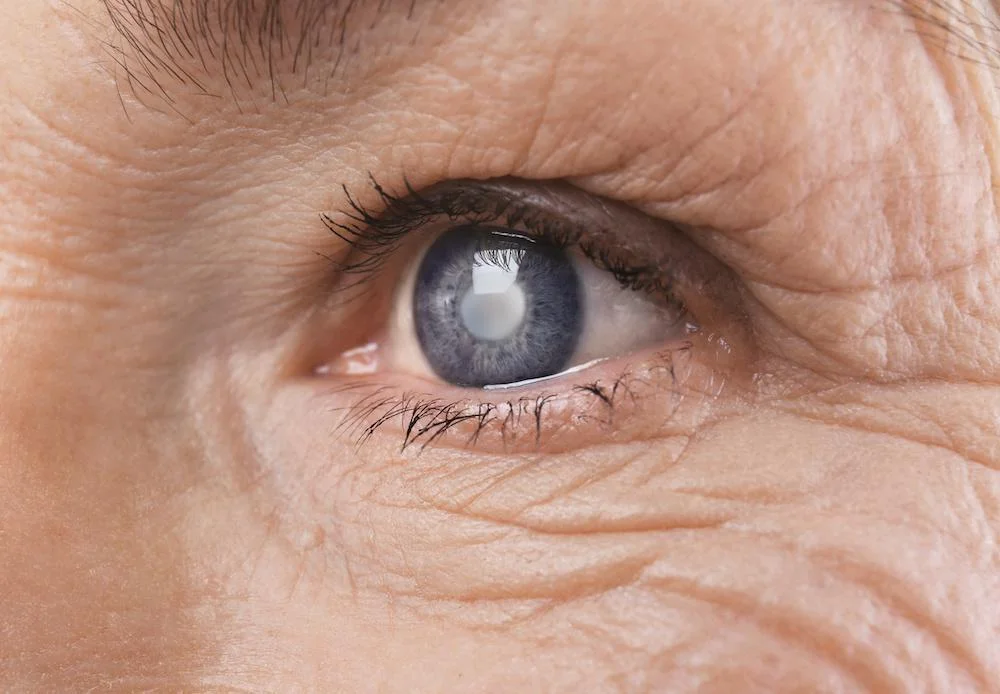Cataracts are cloudy lenses inside your eyes. Your lenses focus light to the back of your eye so your brain can interpret it into visual images. The clouding interferes with the transmission of light so you can’t see clearly anymore.
Cataracts are a common condition that often develops with age. By the time they’re 75 years old, 50% of white women and men in the United States have at least one cataract. By age 80, that climbs to 70% and is joined by 53% of African Americans and 61% of Hispanic Americans.
Cataracts don’t clear on their own. The only way to improve your sight if you have cataracts is to surgically remove the damaged lens and replace it with a clear, artificial lens. Expert ophthalmologist John Ghobrial, MD, specializes in diagnosing and treating cataracts at Eye Associates of Monmouth in Colts Neck, New Jersey.
If you have cataracts, it’s normal to have questions about your condition. It’s also normal to feel worried or anxious about upcoming cataract surgery, especially if you don’t know what to expect. Here, we share the basic steps of cataract surgery so you can feel confident and focus on the happy outcome: permanently clearer and corrected vision.
First, we measure your eye
About a week before your cataract surgery, you come to our office for measurements. Dr. Ghobrial uses painless, noninvasive, nonradioactive ultrasound to accurately measure the shape and size of your eye so he can determine the correct size of your new lens.
The artificial lens is called an intraocular lens (IOL). Like your natural lens, its job is to focus light to the back of your eye so you can see clearly and accurately.
Next, you choose your IOL and procedure
During your consultation, Dr. Ghobrial discusses the types of lenses and surgeries that are available to you. Laser surgery tends to take less time than traditional surgery and has fewer complications. He helps you choose from:
- ReSTOR® multifocal lens (which corrects vision, too)
- Toric IOL (for astigmatism)
- LenSx® femtosecond laser for greater precision
- Traditional cataract surgery
Finally, we evaluate your health with an EKG and bloodwork to be sure you’re healthy enough for your surgery.
Cataract surgery is a same-day procedure
We perform most of our cataract surgeries in same-day surgical centers in Brick and Eatontown, New Jersey. In some cases, your insurance may require that we perform your procedure in a hospital.
The entire cataract surgery procedure only takes about one hour. You come in about an hour before your scheduled surgery, and you need to stay for about an hour afterward so our surgery team can monitor your recovery.
To begin the procedure, we place drops in your eyes that dilate your pupil. Then we give you anesthetics so that you don’t feel anything during your surgery. You may also request a sedative that keeps you groggy but awake and relaxed during your procedure. The steps of cataract removal are simple:
- We make a small incision in your cornea
- We either break up the front of the lens and vacuum it out or remove it surgically
- We place the artificial lens
In most cases, you don’t even need a stitch. The incision is so small it heals by itself.
Expect clear vision
Your vision may be a little blurry immediately after the procedure as your eye heals and adjusts to the new lens. That’s one reason it’s important to have somebody drive you home after your cataract surgery; you also may still be groggy from the sedative.
We give you aftercare instructions, too. Dr. Ghobrial may recommend wearing an eye patch for a few days to protect your eye from dust and other irritants. You also use special eye drops to prevent infection and control eye pressure.
Your eye may feel dry or itchy for a few days. However, be sure to keep your hands away. Never rub your eye or push on it while it’s healing. You come in to see us the day after your surgery for a follow-up exam.
Within a week, your vision is sharp, clear, and unclouded. Colors also probably appear significantly brighter than they did before your surgery. Depending on the type of IOL you received, you may not need glasses anymore.
You don’t need to look at the world through a cloudy lens; book your cataract evaluation and surgery today. Contact our friendly team by phone, or book an appointment online.


